
|
|||||||||||||||||||||||||||||||||||||||||||||||||||||||||||||||||||||||||||||||||||||||||||||||||||||||
NewsJunk podcast with Joe Trippi We just did a podcast with Democratic consultant Joe Trippi about today's Democratic Rules Committee meeting, and the next steps in the nominating process. http://newsjunk.com/mp3/nj080531.mp3 Then we switch gears and talk about the new venture I'm starting with Nicco Mele. We're still just covering the edges of the vision, but it's about news, politics and technology, three things close to my heart. BTW, this is the first NewsJunk podcast. You can subscribe, for now, through the scripting.com RSS feed. IRC for Democratic Rules Committee Meeting Fascinating stuff coming up during testimony at Democratic Party Rules and Bylaws Committee today in Washington. Since we had IRC for each of the major primaries this year, I thought we'd try the same for this event. irc://irc.freenode.net/#dncMay31 Hope you can join us!
Comment thread on Flickr.
Here's a set of photos I took yesterday in Oakland. Overlooked in the McClellan coverage
Probably some of them want to have jobs in the future, and lying right now wouldn't help them in the careers. Further I think almost everyone who has been paying attention knows that what McClellan says is true. Why didn't he speak out earlier? Why didn't a lot of people? Also consider the possibility that other people in the White House got scooped, the ones trashing McClellan and are jealous that his tell-all book got out before theirs, and others are likely to be tried and perhaps go to jail for their actions. In other words, they all have axes to grind here.
In court, if you have a conflict of interest, you're supposed to disclose it, and if it's serious enough, it disqualifies you. I've recommended many times that professional news media should have relationships with less conflicted bloggers for circumstances like this, so when they become the story, the public can have a discussion about them using the channels they own. They don't have much of a choice here, because the channels are going to develop with them or without them. We could all save a bunch of time if they didn't fight it, and welcomed amateurs into their midst.
Until I moved to the East Bay in 2006, I had never ridden on BART. It doesn't go down the peninsula to where I used to live, but it's a fixture of life on this side of the bay and in San Francisco. I like riding BART not only because it's usually faster than driving, but also because I get to see my fellow citizens without their cars. It's fascinating to see who my neighbors are. In NY and Boston, where public transit is much more a part of daily life, you get that experience all the time. Not so much on the west coast. Well, jury duty is like riding BART, only more so. It's as if you were riding on BART, but each passenger, in turn, tells you what they do for a living, who they live with, where they came from, in some cases why they can't serve (always dramatic). What the judge says about jury duty is true, it's what makes America work. There are no professional jurors, just BART people. You just have to be registered to vote or have a driver's license for them to find you. Which leads to a curious inexplicable fact. First, judging from the jury, the Bay Area is a remarkably diverse place. But if you went by the jury alone, you'd conclude that there are no blacks in Alameda County. The only black person of the 100 or so potential jurors was an African immigrant. However, if you go outside the courthouse in downtown Oakland, or ride BART, you'd see that there are lots of blacks. What happened? Maybe they don't vote or drive? I honestly don't know. It seems very improbable that a random drawing would be so skewed. I was riveted listening to the stories people told. It was fascinating. I also had opinions of the lawyers, and the parties. But I can't talk about that yet. What I can say and will is that I was struck by the nobility of my fellow citizens. When asked to serve, they all rise to the occasion. People who doubt that there is cause for hope should sign up for jury duty and go through the process. It is something to behold.
An open source Twitter client?
They have wifi here but it's $5.95 per day. Can you imagine, here we are doing our civic duty, taxpayers all of us, and they want us to pay to get online. It's a crime I tell you! Put me on a jury to decide this and I'll vote to convict. I served on a jury in 1996 and wrote up the experience. Update at 10AM: They called the first group, I was not in it. Is this good news or bad? (I'd rather not serve this time.) Update at 10:30AM: I'm in the second group. Here we go. But we don't have to be here until 1PM. So now what? Oy. Update at 10:45AM: All the group 3 people were excused. Envy.
Update: JR suggests adding a column to the Twitter spew report that shows the percent of total spew each person is responsible for. Good idea! Done.
Should Twitter charge high-spew users?
It's a fair question because these users are super-expensive for Twitter, much more so than users with modest numbers of followers. To get an idea, I have a little agent script that counts and ranks people I have followed in the recent past to get a rough idea of how much work they generate for Twitter's system software. http://twitter.scripting.com/spewage.html You can see that Scoble tops the list with a "spew factor" of 308,359,436. I'm #5 with a spew of 77,174,172. Imho, they shouldn't charge these people because they're feeding the growth of Twitter. If you charge them a competitor will come along and might actually pay them to use their system because it will attract so many other users. Right now Twitter doesn't need more money. They need a design that works, and an implementation of that design. They have lots of money and can get lots more.
The best way to achieve data portability is to just do it. I know that sounds silly, or obvious, but there is so much pretending that there's more to it, that it has to be said. If you want to accomplish something by talking, call up a friend who works at Netflix or Yahoo and ask them if they'll let users move around their movie rating data. I've been asking about this for years. No one's email addresses are involved. All I want is the power to give Netflix permission to read an XML file on yahoo.com that contains my movie rating data (assuming Yahoo goes first). Anyone can see how much power this would give Yahoo. Why don't they do it? I honestly don't know. If I were them, I would. Another example -- if Twitter wanted to buy itself some time and growth, and give developers something exciting to do, they would store as much user profile data as they can off twitter.com servers and on Amazon. Simple XML formats, use some of their ability to raise investment capital (which they have proven) to grow the human network while they patch up or rewrite their system software. The more data they can move off their outage-prone systems, the more the network can grow around them, but not dependent on them. Amazon has proven they can keep their servers running. Leverage that.
Update: Brad Feld argues for APIs. A few months ago I would have agreed, but today I don't think an API is enough. As we've seen with Twitter, when the service goes down, there is no API and there is 100 percent lock-in. We need more. The most vital data must be stored off-site, so it doesn't go away when the service goes down. In February 1992, I started work a piece of Frontier called the scheduler. It's the equivalent of what they call "cron" in Unix-Land. You can put scripts in four different places: 1. everyMinute scripts, 2. hourly scripts, 3. overnight scripts and 4. threads. It was a simple bit of code that's been running now for 16 years, on every copy of Frontier, Radio, or the OPML Editor. It was built on the foundation for background processes that existed in 1992. A few years later a better foundation was built, but the scheduler was never adapted to run on that. It's always had a certain flakiness, and I never had the patience to track it down. It's old code, written before I learned a lot of things about the Frontier environment, what works and what doesn't. I just lived with the flakiness. Yesterday I got tired of it, and I did what programmers like to do, I rewrote it. It took a few hours, but the new version is *much* cleaner, and already runs much more reliably. Proving the point that sometimes code rewrites are the way to go. I've released the new part to OPML Editor users. There's no code that uses it yet, but there will be soon.
This time Hillary Clinton has gone too far. Strike 1. Positioning Barack Obama as the black candidate after the South Carolina primary. Strike 2. Refusing to say Obama is Christian, not Muslim. Strike 3. Saying white voters go with her, in desperation, after the Indiana and North Carolina primaries. Strike 4. Suggesting she should stay in the race because Bobby Kennedy was assassinated in June in 1968. Too much benefit of the doubt. Bringing assassination into political discourse as an "issue" is too much. Hillary Clinton is a sophisticated, calculating politician. She doesn't make accidental statements, and has in no way earned the benefit of the doubt. Her explanation is a non-explanation. Her retraction was not a retraction, and she was nowhere in the neighborhood of an apology Screwing around with life and death is over the top. Earlier today I posted on Twitter that it was inevitable that she would be on the ticket with Obama. Once again I forgot how awful this person is. It won't happen again. Update: MP3 of Keith Olbermann's special comment on Countdown tonight. Monitoring Twitter's down-ness
When it's been running for a few days I'll put up a report page. Hopefully it'll be up more than it's down. I twitted it on FriendFeed. Update: A site that monitored Twitter uptime in 2007.
FriendFeed gets rooms, so does Scripting News An interesting but mysterious new feature appeared today in FriendFeed, rooms, and of course we have to try it out. I created a room for Scripting News. What shall we use it for? I have no clue. Help me figure it out. Something just jumped out at me. Is this the Digg-in-a-Box that I was asking for many months ago? These guys always confuse me, in a fun way. Twitter begins to communicate with their users
There were two posts, one from Jack Dorsey, the CEO and another from Alex Payne, an engineer at "Twitter HQ." Payne, by pointing to a piece that dismisses decentralization and says we don't understand Twitter, thereby shows (sorry to say) that he doesn't understand it. It's like the elephant being described by a million blind men. Each of us sees something different and thinks, incorrectly, that we have the whole picture. In fact, none of us do. It's easy to prove that Twitter is different for everyone. I'll start with myself. I have 9644 followers on my main account, and I follow 663 people and have updated 7870 times. I can't keep up all the people I follow. Back when I only followed 100 people, Twitter made it possible for me to learn about the people I followed. It was remarkable. Today I never make it through all 10 pages of history, the rope slips through my hands. This wonderful feature of Twitter, that I reveled in last year this time, is now lost to me. (And some people follow over 20,000. Can you imagine they have any idea what all those people are doing?) So even with just that one account I already am three or four of the blind men who think they grok Twitter, and each of them sees something different. I could write a 5000 word article for each of them, the experiences would be very different.
Alex Payne -- the Twitter engineer -- follows 319 people, has 3181 followers and has updated 3430 times. Cliff Gerrish is a website builder in SF, follows 350 people, is followed by 309 people and has updated 1650 times. I can't explain how each of these people sees Twitter, but I'm absolutely sure we all see it differently. To me, Twitter is a publishing medium. I wish it weren't so, I wish I had the bandwidth to really follow 663 people. I have no idea how to thin out the ranks of the people I'm following, and I don't plan to. But to the extent that the company is having trouble scaling it for me, I think they should stop worrying about it. Further, and this is important, most of the things I post are not especially time-sensitive. If it took 1/2 hour to deliver each one to each of my 9644 followers it wouldn't be the end of the world. However, a week ago I had a news scoop, the first report of an earthquake in Falls Church, VA. That was an example of a high priority message. I have a requirement that many other Twitter users might not have -- I have to stay on the air when Twitter goes down, and this, if you think about it, makes decentralization not an option but an absolute necessity, no matter what the architecture guys may think. I must have a Plan B, because I intend to build a business that depends on this service, or something like it. I want to start that business in the next few weeks (actually I started it quite some time ago, but it's about to evolve). It won't do any good for any of us blind men to dismiss anyone else's point of view. That's what I would like to get through to the people who run Twitter, who work there, their investors. To me, nothing is so frustrating as people who think they understand better than others when they don't. Please, don't fall into that trap. Remember we're all blind men, you too -- keep in touch with your humility. I look forward to a long, interesting conversation about this stuff! PS: A discussion has started on FriendFeed under a post by Fred Wilson.
Hat's off to David Gergen, who until now I thought was just another empty suit talking head. Turns out he's got some guts. On CNN on Tuesday night he called on Hillary Clinton to reject racist votes. It would cost her nothing now that the racists have finished voting. She complains of sexism at the same time she's been openly encouraging people to vote for her because she's white. Gergen says, righteously, that Hillary could say: "If you want to vote against him because he's black, I don't want your vote." Amen brother! (And let's go Hillary.) Thanks to Culturekitchen for the clue.
1. The first meeting of people interested in the technology took place at the Oct 2003 BloggerCon, hosted at Harvard. You'll see this meeting mentioned prominently in every history of podcasting. A lot of the people working in this area were there and freely exchanged ideas, techniques and enthusiasm. (The Day 2 grid for the first BloggerCon.) 2. It was at Berkman, with the help of Bob Doyle and the talent of my fellow Berkmanite Chris Lydon and the support of John Palfrey and the rest of the Berkman team that we did the first podcast program, a series of interviews of early bloggers, technology leaders and people making news. We distributed these through Chris's blog, and also through, for the first time, an RSS 2.0 feed with enclosures. 3. It was also at Berkman, in June 2004 and through the Democratic Convention in Boston that summer that I started Morning Coffee Notes, my own podcast, that broke new ground. It seems that my amateurish but very enthusiastic (and imho creative) efforts served to inspire many others. Where people heard my rough podcasts many thought "Hey I could do that too." Nothing like podcasting ever takes off like people say things like that do, it's never a big bang, or the "build a better mousetrap" myth. It's always iterative, trial and error. You needed Chuck Berry and many others before the British Invasion could happen and then the Beatles. We're probably still in the early days of the art of podcasting, but there's no doubt that Berkman played a big role in incubating and nuturing the initial seed. John Palfrey gave an interview to Harvard Law Today where he summed up the story with remarkable economy. If you're interested in the area, the PDF scan is worth a read. John also talks about the invaluable role Berkman played in stabilizing the RSS 2.0 standard. PS: A list of topics discussed at all four BloggerCons. I keep looking for this list. Sorry for the lack of updates here the last few days. I'm working on a new project I find very interesting. Not sure if it's going to pan out, but I'm having a blast working on it. Stay tuned.
While I was traveling the machine that was generating nytimesriver.com overheated and stopped running the app. This morning the first thing I did was get it running again, and made a few tweaks and small performance improvements. Thanks everyone for being so patient. Nothing from nothing leaves nothing
If you were to ask a pro blogger this question, they would say of course not. Now if you ask me -- there never was such a thing as a pro blogger. It's a contradiction in terms. It's like calling someone a professional amateur. It's like salty orange juice, a drink whose taste is derived from its acidity. Blogging is an amateur activity. It's users writing about what they do, not professionals writing about what users do. That pros have tried to hijack the term doesn't somehow evade the old question of what happens to pros in an age where users go direct to each other. They thought they could pull a fast one "Oh we'll just steal their name" and somehow their economic model will start making sense when it didn't before. Oh lord, you can't buy a Mercedes Benz with that. Remember this old Doc Searlsism. We make money because we blog not from our blog. We earn because we learn from sharing our experiences with others, not because we let advertisers hitch a ride on our writing for a fee. No one pays attention to the ads, so it doesn't matter if you include them or not. As Billy Preston once sang, nothing from nothing leaves nothing. Hopefully that answers the question Mr. Evans asked.
1. Sites that have my data, but won't let me use as I'd like to. Example -- movie ratings data locked up by Netflix and Yahoo. Why, when I rate a movie at Netflix can't I let Yahoo have that data and vice versa. And if you'd like to link movie ratings to a dating profile on match.com or Jdate, why not let users arrange that? 2. I've always believed that blogging and RSS tools should export their data so users can switch tools and the products at UserLand all did this. As a result, there's a tradition among RSS readers that they import and export OPML subscription lists. It happened because Radio UserLand, the early market leader, did. 3. Interestingly, this is another example of "People return to sites that send them away," a long-held belief here on Scripting News. For background see this post. Now, what more can we do? In an email exchange on this subject, Fred Wilson said: "I still use last.fm because I use at least a half dozen services actively that suck in my last.fm feed," he said. Vendors, pay attention --> Fred Wilson may be a bleeding edge user, but he is a user, and if he figured it out, others are sure to follow. Which led me to this new idea... Let's reward companies who trust us with our data by giving them awards, a seal of approval they can boast about, a way of identifying those services that will survive the purge that's certainly coming. Eventually we will abandon our data and start anew, this time with the requirement that we can take our data with us. Lock people in with price, performance and features, not a deadbolt. Lock users in with love, not force. Sting sang it: If you love someone set them free. A paradox only if you think you can force someone to love you.
Here are some pics and videos from the New York/Boston trip. Didn't get a chance to talk with 1/2 the people I wanted to. It was mostly a busdev trip. To start working face to face with the SwitchABit team. And to plot out the next projects after that. On Thursday we announced what SwitchABit is -- a platform for wiring together the apps that are rising up, all with APIs that allow them to be combined in itneresting ways, by more technical users, so we all can learn, and do more cool stuff and then who knows what. Question -- Did you switch over to the new flickr.twittergram.com? How's it working? Any feedback for the team? We're dying to know if it's working for you. Did you push any pics through the engine over the weekend? Did they get through quickly and accurately? iTunes is now playing Hotel California. I've got it playing all California tunes. Hah. Wonder what's next.
About the substance of it all, see this recent blog post. The answer is not the BigCo's -- they will have to catch up with what the market decides on. Some little guy will pop in at exactly the moment a sufficient number of users are ready to be free and it will look like they are visionaries when in fact they were at the right place at the right time. Little guys are always entering the market. Every day. It's like roulette. One of them will be the next big guy, but will get there by taking advantage of paralysis caused by the bigness of the current big guys. But it's hardly the first time I've written about it. Of all the people on the show Scoble is the most right, but of course no one listens to Scoble. Arrington was out of his mind with self-admiration before he won the Time 100, now he's completely lost it. But he actually made some good points, and I liked the way he called Canter on his bullshit, even though he was giving Scoble shit just for the sake of winding him up and getting him to spin around, which Scoble did, to an amazing extent. I thought there was a good chance he'd explode at one point. That's what I don't like about Arrington. Like most Republican lawyers he's just in it to make people look stupid, not trying to actually improve things. If you think Arrington doesn't deserve this, just listen to the podcast. Congrats to Gillmor on the theater (pretty sure that's what he's in it for) and with the new TechCrunch label, he's being listened to more than ever. Let's just hope at some point these guys work a little harder to get to the bottom of it. PS: For the 180th time, wouldn't it be great if Netflix let the users have their movie rating metadata for use in dating sites, for example. Why try to hit a home run when it would be just as good to get on base. Also don't forget Amazon is building up quite a profile on each of their millions of customers and could offer an interface to it through their developer services. Just a thought. It's a big world out there, don't just focus on three "players" -- the world is much bigger and more interesting.
So we developed a platform to make it easy to set up these complex relationships. The focus has been on power with maximum ease of use. It's called SwitchABit, and it will go to private beta sometime in the next couple of weeks. We'll have a signup page where you can let us know you want to work with us on getting it smoothed out and ready for massive consumption. In the meantime, to prove that it's working, we've adapted two of my early Twitter-related apps, both on the Twittergram domain, to run on the SwitchABit platform. The first of these is ready for people to use -- the Flickr-to-Twitter functionality. If you're already a Twittergram user, you can go to the original setup page, and look for the yellow box with the picture of the friendly postman, and click on the link to be taken to the new site. Fill in the form, validate your account, and give it a whirl. It should be every bit as reliable as the original service (maybe more so) and quite a bit faster. It's also designed to scale to work for hundreds of thousands of users, Murphy-willing. Anyway -- wish us luck -- the journey begins today. We hope you come along for the ride! Twitter status? Yeah it's down. Again. What are you doing now? There's no words there!!! Fill in the appropriate four letter word. Today I'm at the Berkman @ 10 conference in Austin Hall on the Harvard Law School campus. It's a reunion of sorts, of people who have been part of or interested in Berkman Center. I was a fellow there between 2003 and 2005 and worked on getting blogs to be part of the Harvard culture. Just took a bunch of pics. Going to upload a few now. The wifi here seems pretty good. Doc Searls just walked by don't think he saw me. Someone just took my pic. I always make a face as they get their camera focused. Can't keep a smile on my face for more than a second or two before I start feeling silly. Video of the schmoozing before the opening of the conference. Listening to Elena Kagan, Dean of Harvard Law School, listing Berkman accomplishments of the faculty. No mention of the fellows. John Palfrey is becoming the Dean in charge of the Harvard Law Library. Amazing job. Hope he does interesting things with it. Terry Fisher, listing Berkman's accomplishments, said the first podcast was done at Berkman. Can't tell you how pleased I am to hear him take credit for this (no sarcasm). Some. Professors. Speak. Slowly. And. Deliberately. Jon Zittrain is thinking of going to Stanford, and they want him to come back to Berkman. They're really schmoozing him up in front of everyone. Video: Jon Zittrain explains the Internet. Comcast is a very strange company They just announced that they bought rolodex company Plaxo. Price rumored to be betw $100 and $200 million. Media sharing? Comcast? You gotta be kidding. Maybe they can share the rolodex of the people they just bought and try to work with creative media technology people instead of threatening to fire them as customers. Just sayin.
And fucking Twitter is fucking down. Fuck! See also: Interview with Nicco Mele, the man behind the $1000 reward. Seesmic and Disqus sittin in a tree
So when Daniel at Disqus and Loic at Seesmic asked if I would let them use Scripting News as one of the places they rolled out their new partnership I said Yes and I would be honored (I said it weeeth ze Franch agzent). I thought they were going to roll it out at 11AM Eastern, but I see Fred Wilson has already posted on it. We already have some video comments (Scoble was first, of course, followed by Steve Garfield) so here we go, a new era in conversational blogging. And congrats to the good folk at Disqus and Seesmic for making this a reality. PS: A disadvantage of video comments -- it's hard to hear them in a crowded terminal waiting for a plane to Boston. PPS: Why do people talk so quietly when they're leaving video comments? Sounds like they don't want to wake someone up.
Photos/Videos from NY/Boston trip I'm accumulating a photo log of my east coast trip on Flickr. There's a puzzle on one of the pics. Why are bus signs so high off the ground? Hint: It has nothing to do with snow. Tuesdays bring political news and today is no different. First, an op-ed in today's New York TImes from 1972 Democratic presidential candidate George McGovern. I worked for McGovern, he was the last candidate before Obama that I believed in, this was when there was a draft and a war, and I was draft age, but not old enough to vote. Something I didn't know -- Hubert Humphrey led a challenge to the California delegation that made McGovern and his staff fight for the nomination through the convention, and according to McG this led to his defeat in November. This was news to me. McGovern wrote: "After winning the California primary in June, I thought I had the nomination in hand. But a desperate slash-and-burn effort was pressed against me by the candidates I had defeated. California's delegates that year were allocated under a winner-take-all system, but my opponents -- led by Senator Hubert Humphrey, my lifelong friend -- began clamoring to change the rules and to assign the state's delegates proportionally." The whole story is good reading. Also division in the Democratic Party led to the election of Nixon in 1968 and Reagan in 1980. Key takeaway -- HRC is playing with fire when they hold out the possibility of fighting Obama's nomination all the way to the convention. She won as expected tonight in West Virginia. Her speech was not in any way a concession, she's not looking to land the plane. Her advocates are talking dangerous election-losing talk.
Poor Huckabee was on MSNBC when the news of the Childers win came in. He didn't spin, came right out and said the news was every bit as bad for Republicans as it appears. Russert gave him credit for saying openly what Republicans had been saying privately. Meanwhile President Bush predictably, desperately threw FUD at the process, warning that if Obama is elected there could be another major terrorist attack on US soil. Thanks for the terrorism, Mr. President. I'm at the offices of Betaworks in New York, meeting with CEO John Borthwick who I know for many years from AOL. They have built a product called Firefly which is rolling out tonight at the Tech Meetup in New York. He just gave me a demo and my first reaction was "You can't do that," then I asked if I could put a demo of it on Scripting News today and he said (to my surprise) Yes. It's so weird it's practically illegal. You can watch people's mouse move around the page, and then chat with them. Go ahead and give it a try.
Why decentralizing Twitter is hopeless
Echovar: "The idea of building competitors to Twitter on the same platform, or redistributing Twitter to multiple players reminds me of the idea that New York City should be rebuilt in Ohio because it would be cheaper. Or perhaps we could distribute a little of New York City in every state of the Union. New York City is what it is because of the people who live and visit there. Building another New York City in Las Vegas doesn't result in the phenomenon that is New York City. In a very important sense, Twitter is decentralized at its core, it is rhizomatic rather than arborescent." Now go read the whole thing, please. PS: As has been pointed out by several emailers, the idea of relocating cities in the virtual world appeared in a piece I wrote yesterday, where I said indeed it does happen. It can't happen in the real world. But in defense of echovar, it would only happen if there were a war where platform vendors were fighting in vain to lock us in, and only when Twitter was so mature that we understood every nuance of how it's used. Yes, we are, today, locked into Twitter. And I'm not comfortable about that. Eventually, relocating New York may be what we have to do. Charles Cooper is very correct though in his piece on this subject, it's time for Twitter to get into this discussion and tell us what their thoughts are. From time to time people ask what the images in the margins of Scripting News mean. I don't think I've ever answered the question on the blog itself. There are many answers to the question because they mean whatever you want them to mean. The point is to stimulate creativity. If I wrote an article about Fidel Castro, for example, and put a fiery picture of Fidel next to the piece it would satisfy curiosity. "I wonder what he looks like?" Suspense eliminated. That kind of imagery serves to quell creativity, to push it down, stifle it. It answers questions as opposed to raising them. Lowers entropy instead of increasing it. My goal is to stimulate thinking. If people say they disagree with me -- excellent. Sometimes I disagree too. There are many sides to every question, and many of them are valid. To fix on one answer as being the only one would be to eliminate creativity, imagination. It's why stories told on radio can be so incredibly vivid compared to movies or TV. You get to supply the visuals. So if the meaning isn't obvious, you get to find your own meaning. That's better sometimes than filling in all the blanks. Create new blanks. My pictures are supposed to raise questions. The first one might be "Why did he put that there?" You may find you have an answer, but know that that's your answer, not anyone else's. It says something about you. Or you might look at the picture and say "That's a weird picture" and not give it another thought. That's also a valid answer. Or you might be tired of the pictures and see one and choose not to read the article. More power to you! Esther Dyson once sent an email asking why there was a big picture of herself next to an article that had nothing to do with her. "I thought it was an interesting picture" is what I said. I told the truth, the whole truth, and nothing but the truth. I once got a call from a neighbor when I lived in the country, she said she was going to get some baby goats, and they might make a lot of noise as they were being weaned from their mother. I asked why she was getting the goats. She said she always wanted goats. That's pretty much what the images mean.
What will Hillary do with her power? Oh the political debate is getting interesting! Assuming the Democratic nomination is actually decided, then what is Hillary Clinton's future role? Last night on Larry King I heard Carole Simpson, a black woman, supporter of HRC, say that it's white men calling for her to withdraw. (Transcript.)
Even so, it seems to me that people of all genders are conspicuously not asking Clinton to withdraw out of respect for her power, which she has a lot of. What she does with that power now will have a lot to do with what happens next. I know that's pretty waffly, but I don't know how else to say it. She could blow something up. She could ask women to get angry. If she does, it seems there will be some angry women. Maybe many very angry women. Scary thought. No sarcasm. Perhaps her role will be analogous to Al Sharpton, sharp-tongued rallier of specialized anger. HRC is potentially a political leader of women unlike any leader we've ever seen. There have been some powerful women politicians -- Bella Abzug, Golda Meir, Margaret Thatcher, Indira Gandhi, Benazir Bhutto, Nancy Pelosi. But what will Hillary do with her power?
It's also in human nature for the users to realize they're being used, get fed up, and create or discover the technology for themselves thereby routing around all the warring parties. It's as if the citizens of France during WWII got fed up with the Germans and the Allies, and decided to create a new France on new land and all move there, leaving the armies to fight over nothing. You can't do it in the real world, but it's how it works in the virtual world. Having seen a number of these wars, and seeing each of them end not in triumph, but irrelevance, I believe we're getting closer to the end in the warfare defined by social networks. That's the real lesson behind this article by Mike Arrington, about the three companies throwing vapor at each other, two publicly, MySpace and Facebook, and Google in the back channel. Somewhere lurking back there are Microsoft and Yahoo, each with also-rans no doubt coming soon. I wouldn't pay too much attention to what the big players do here, they will be too constrained by BigCo thought processes, and a desire to appear to be giving stuff away without actually giving anything away. Open is a funny thing, you can't be partially open. You can't edge your way toward open. You can't be open and hold the valuable stuff in reserve for yourself. BigCo's can't afford to do what it takes to coalesce a popular maturing technology around their own platform. It won't happen in BigCoLand. Only a little dude with nothing to lose can choose to build around something truly open. (The big guys are always forced to, eventually.) The most famous war-collapse was when the web took over from the warfare between Microsoft and the Taligent team (Apple, IBM, Borland, Novell, lots of others). They were all busy blowing smoke at each other over the users when out of nowhere a network that had been around longer than any of them, that had already solved every problem they were trying to solve that was worth solving, swooped in and doused all the warfare. How? The users fell in love, and as we know, love is a very powerful force. My guess, if I had to make one, is that the social network that we will all be building on in the coming years is already out there. It could be Twitter, after it's federated, or it could be what FriendFeed is teasing about. Or it could be two kids in a garage that no one is paying attention to. Keep your eyes and ears open and trust your gut, you'll know it when you see it. There's a game being played on Twitter that goes like this. "When Obama wins..." The game is to fill in the blank creatively. . Here are some examples. Here's my entry.
We're working to build a scalable, beautiful new TwitterGram, an application built on the super-powerful SwitchAbit platform. I just posted a Tweet: "After seeing comments blossom in FriendFeed, it seems either Twitter should have comments, or extend the API so someone else can add them." Why? 1. People still reply to tweets, expecting a response in a tweet. It's noise to most of my followers. They send responses (to me) asking what am I responding to. If I answer that, then other people ask what I'm responding to in explaining the other person's response. Twitter is not symmetric, that's a good feature, but it makes for a shitty conversation medium, imho. 2. Far more people use Twitter than use FriendFeed. Yes, I think it's great there are APIs and that makes it possible for FriendFeed to build on what Twitter does. But it is a competitive market and ideas should slosh around among all the products. 3. The length of this post should provide a clue why comments would be good in Twitter. I started writing #1 in Twitter itself, and went over 140 chars before I had expressed a single idea. Testing Pownce public downloads
Here's a screen shot of the post. Anyone should be able to listen to the song even if they're not a member of Pownce. Screen shot of the prefs page for public/not public. Update: Sometime after it was uploaded it stopped working, people were unable to download the song. Obviously there are still some glitches to work out.
Where Pownce is developing strength is in the area of payloads, but until today they were limited to members of Pownce and for non-pro users, to friends of the uploaders. Now it's possible to upload files that can be downloaded by anyone. The size limit for payloads used to be 10MB, now it's 100MB, and for pro users 250MB. Interesting new applications should be possible, making it competitive with services such as YouTube and blip.tv, and because it has an API it's possible to develop applications with Pownce that are not possible with other services. This post on TechCrunch started a bit of discussion. Ben Metcalfe posted an interesting video comment there, embedded below.
2. Obama will show up once or twice in Kentucky and West Virginia, but it will be relaxed, he'll do big rallies, town halls, meetups, take a bowling lesson, shoot some hoops. 3. At the same time he'll tour the following states: Florida, Michigan, Ohio, Pennsylvania, New York, New Jersey, Maryland, Massachusetts, Nevada, California, New Mexico, Colorado, Minnesota, Iowa, Texas, Washington, Wisconsin, Missouri, Illinois, Virginia. I must be leaving some out. The point -- illustrate for everyone who might have been listening to HRC that he gets that these are the important states for any Democrat, and it doesn't matter that HRC got more votes in some of these states, he plans to compete to win all of them. Campaigning in those states signals that he's on to the next phase of his candidacy. 4. Take a breather, prepare for HRC's concession, a big party somewhere, and then off to Europe in June to meet with the leaders of the western alliance. A motorcade down the Champs Elysees. The family visits with Gordon Brown's family. Pay respects to the Queen of England. Show the folks back home that in the Obama Administration the US will have many challenges, but we'll also have lots of friends to help. What else? Not sure. What do you think?? Fred's heart is in the right place. He puts money behind technology he likes. This is bootstrapping. Then he bothers the developers with features he needs. He's a bootstrapper and a hacker. Then Fred reads articles written by other people and listens to a Tim O'Reilly keynote and tries to get everyone into agreement. Reminds me of The Negotiator, William Shatner.
People who believe in big-bangs miss that you learn stuff while you're implementing stuff and that learning should be recycled back into the project, again and again. There was an excellent series on PBS a few years back called Connections; in each episode they take you through a series of developments how little pieces of one thing became something much bigger, you start with something small and every step of the way make small improvements and before you know it you're standing on the moon saying "One small step for man..." A journey of a thousand miles begins with a single step. I've heard bootstrapping described as "paving the cowpaths." Twitter was a bootstrap too. There were a lot of small things that needed to get solved before Twitter could work. It may look like it popped up out of nowhere if you don't know how the pieces came together, but if you do... One thing that's feeding epiphany for me is that I'm working with Scott Rosenberg on his history of blogging, which promises to be a great book, and reliving all the steps that got us to where we are.
Since I got shut down last month for being in the top 1/10th of 1 percent of their customers, without notice, I'm in a pretty good position to evaluate this plan from a customer's perspective. Comments... 1. They're stating publicly that they have a limit and what the limit is. This is better than having an unstated limit that's a moving target over time and geography. 2. They will provide a site where they tell us how much we've used. 2. It gives other ISPs something to compete against. They can offer plans with a 350GB limit or a 1TB limit. 3. It's not fair to customers to change the terms after they sign up. People always argue it from Comcast's perspective, never from the customer's. They may have a right to do it, but it still isn't fair. 4. How much bandwidth does a product like Slingbox use? Probably not a product Comcast loves very much, btw. 5. There's a weird connection between this and DMCA notices. Makes me wonder what their real motivation is. Remember Comcast is in the TV business, and video on the Internet is a big bandwidth user. 6. Do you think Comcast should lease their cable to competitors if they're not going to provide plain vanilla internet access? 7. I want neutral Internet service, so I can build whatever I want to out of it. I don't mind if there's a meter, but I don't like the deal changing after I sign on, makes me wonder what's coming next.
By popular request, my ode to Gary, Indiana -- the town that is turning the world upside down tonight.
Then we started getting ads. Here's one with a Toyota ad. So much for not having a business model! IRC for Indiana/North Carolina I started a chatroom for tomorrow's primaries. irc://irc.freenode.net/#indianaNorthCarolinaPrimary Please join if you want the firehose conversation! Read this post from John Borthwick, my partner in Switch-A-Bit. http://www.borthwick.com/weblog/2008/05/06/future-of-news/ Breaking news covered by a loosely coupled ad hoc group of Twitterlings. Update: Reuters was watching too.
Boostrapping a decentralized Twitter
I always work in bootstrapping mode, addressing the first big issue, solving the problem, then advancing to the next one. It's why so many of the ideas I've worked on have become popular modes of communication. Big-bang approaches always fail. I've spent decades arguing with people who want to reinvent the world in one stroke. They always try anyway and always fail. Bootstrapping is the only way that works. BTW, I'm not the only one who believes in bootstrapping. Doug Engelbart, who invented many of the things we take for granted today works that way as well. So the first step in decentralizing Twitter is to get our data safe and stored off twitter.com. Then we need discovery, a way to find people through Twitter, and then without Twitter. There are many ways to do this that work and scale (DNS for one, Skype does it too, without a central server). It's also important that we work with Twitter and that they be rewarded for being the primary bootstrapper of this network. I think it's important because it's right, and also because we need to incentivize others to do the same. Also, while others believe the conversational aspects of Twitter are primary, I'm not one of them. I buy into the original vision -- "What are you doing?" -- and also see it as a link-blogging environment. I have of course used it conversationally, I've replied on Twitter to others, but I don't depend on it because I think this is going to "spam out" -- in fact it already is going that way. Just in the last few days I've gotten replies from users whose Twitter streams look totally like splogs, and at least a few of them are clearly automated. I block every one of them. Steve O'Hear: Respect what already exists. Amen!
We started talking with the man at the next table about how cold it is, and I said it's nothing, I grew up in NYC and went to school in Wisconsin. The man, who was black and wearing an Obama for President button, said he was from the Bronx, we started talking about the hometown and the good old days (we're about the same age) and after a while talk turned to politics and he volunteered something that I found jarring. You know Barack Obama isn't black like I am. Hmmm. He said Obama was raised by his white mother in Indonesia and his white grandparents in Hawaii and his father who was from Kenya was not an American. I've been to Hawaii, it's not like the Bronx or Chicago, LA or the Deep South where most black Americans live. If you look at a map you'll see how far away Hawaii is from the US mainland. So what's the point? I don't know, but if if the tables were turned and we were electing the first Jewish president, but his father was from Israel, and his mother was Christian, and he was raised far away from the cultural centers of Jewish life in the US, I'd wonder how much like me he was. That's all. I'm still voting for him. IRC for Indiana/North Carolina I started a chatroom for tomorrow's primaries. irc://irc.freenode.net/#indianaNorthCarolinaPrimary Please join if you want the firehose conversation! If the Dems didn't have Superdelegates... I was wondering if the Democrats, like the Republicans, didn't have superdelegates, where would the race stand right now. Here are the numbers... At this moment, Obama has 1491 and Clinton has 1337. There are 404 delegates remaining in 8 primaries and caucuses. So with a difference of only 154 delegates, the nomination would not be decided. However, to take the nomination by 1 delegate, Clinton would have to win 70% or the remaining delegates.
Why decentralizing Twitter is so important
When I was maintaining the What Are Weblogs page on weblogs.com, in 2000, I said up-front that TBL's site was also the first weblog. The crazy thing is I remember looking at the site, with my own eyes, and realizing that I was looking at history, like listening to the first telephone conversation or watching Thomas Edison turn on his first electric light bulb. Today, in 2008, the network we're building with Twitter is imho as historic as any of these things, we're all creating artifacts and connections that are even more fragile than the early web, because, unlike the web, it's 100 percent centralized. We all trust the owners of Twitter, but they're human, even with the best intent, we all are taking a risk that the network could disappear at any time. And unlike the Internet which has huge amounts of redundancy built-in, if there's any redundancy in Twitter, none of us outside the company know about it. This is just plain unacceptable. I'm on the case because I care so much about this medium, and if it were to disappear, I would feel partially responsible if I hadn't raised a huge red flag warning about this very unreliable architecture we're building on. And, if you know where there's a backup of the original info.cern.ch, please post a link here, in a comment. Update #1: A new web service for Twitter clients. Update #2: Marc Canter checks in.
You have to fit the phrase into conversation at least once during the day. Example. "It's bad design to put all your eggs in one basket. One day your chickens will come home to roost." Taken last night on Indian Rock. A view of the back of Indian Rock on Google Maps. A new web service for Twitter clients
I said I might put up a web service to store user's RSS feeds on Amazon S3, and I'd pick up the hosting bill, to help the bootstrap. One developer took me up on the proposal, so I went ahead and implemented it. Here's how it works. 1. There's a new XML-RPC service at this address: xmlrpc://rpc.twittergram.com/RPC2 2. The name of the procedure is twittergram.saveFeed. 3. It takes three params: The user's Twitter username and password, and the text of the feed. The password is only used to authenticate, it is not stored on the server. 4. It returns the URL of the feed as its stored on feeds.twittergram.com. 5. Code (in UserTalk) that works.
Microblogging should be decentralized
Read his whole post and think about what you can do. One thing right off the bat -- if you make a desktop tool for Twitter, you can offer the user the option to store their twitstream as an RSS feed. Just do it in parallel, transparently for the user (although it's a preference). You can key off their Twitter ID. If you want I'll set up a service for free hosting of the feed on Amazon S3 (it's not a very expensive thing) or it's something you could provide as a bonus feature. It's a step in a positive direction for decentralizing. It's not the whole thing, but it's a big part of it. And should Twitter ever go off the air for more than a few days, it'll be the way we put the network back together. Update #1: I took a walk, and thought some more about this. If there were a way to point, from your Twitter account, to an alternate feed, then your desktop client could cache a pointer to the feed for each person you're following. If Twitter were to go down, then the desktop client would fall back to polling the feeds. It would probably be slower, but it would work. If one of the people you follow didn't have an alternate feed, you'd have to wait for Twitter to come back up to find out what's new with them. But if they used a desktop client, and the client was maintaining the feed automatically for each user (subject to a pref), then it would notify Twitter where it was storing the feed. Twitter would just have to maintain one more string for each user, alongside the user's location, link to their website, one-line bio, etc. However: It would require support from Twitter, Inc. to work. Rev Chickens-Come-Home-To-Roost
Yes, Obama is a gifted politician, and that's why we like him. We need political leadership, we've done without it for the last four terms, sixteen years, and we hope that this guy really gets that the power is with us, that we pay the bills, fight the wars, and it's our hard work and innovation that drive the economy that makes America powerful when we are powerful. Wright? He's a deer that got caught in a headlight none of us have ever been in, so we don't really have a right to judge him. He spun around looking for friends, and found he was radioactive, and it really wasn't his fault. He wasn't running for office, in a rhetorical way he totally did inhale and exhale and inhaled again, and again. The only people who really liked his radioactivity were people like Louis Farrakhan and his followers who want to disrupt the US political process. So what to do with the Wright legacy? I feel sorry for him, but I hope he finds some good people who aren't out to destroy other good people and he skips writing the book, and he kicks back and lets the member of his flock take the leadership we want and need him to. See also: Bill Moyers, yesterday, on Rev Wright.
Then you learn that there are two types of water pipes, run by different companies, and it's very rare that both go down at the same time. So, if you can afford it, you get both water suppliers to pipe into your house, and when one goes down, you go to the street, lift a manhole cover, go down a ladder, and disconnect the one that doesn't work and hook up the one that does. It's a hassle for sure, but you always have water. Then someone invents a T-shaped pipe with two inputs and one output. You hook the two suppliers each to a branch and your house to the third. This way when one goes down, you don't even know it. The water keeps flowing, you're happy. It works the same way with the Internet. Some days Comcast goes down, and others AT&T DSL, but they rarely go down at the same time. I have both because the Internet is still young and unreliable, and I've lived with its lack of reliability before and it's worth a hundred bucks a month to have the luxury of uninterrupted service when one or the other goes down. But until yesterday, if I needed to switch over, I'd have to rewire my network just to switch to the other vendor. But, it turns out they make T-pipes for the Internet, they're called Dual-WAN Routers. And I got one. It took a fair amount of fussing-with to get it working, but it has a nice fractional horsepower HTTP server to configure the router, a good help system, and I kind of intuitively get what it does. Comcast is going to like this, their service is so much faster than AT&T's that I set it up so that AT&T is the backup. I won't actually send any packets over their line unless Comcast goes down, or gets pissed at me (it happens) -- but they should note that turning me off will no longer get my attention. And thanks to my parents for buying this lovely gift for me. How did they know I wanted one? Another innovation, Amazon Wishlists. This Dual-WAN Router thing isn't something I would likely buy for myself, too speculative, I wasn't at all sure it would be simple enough to set up, or that I really needed it. There is a recession going on after all. And they never would have had a clue that I was interested. But now I have one and I'm very happy to have it. Why did I decide on Xincom? I read the reviews on Amazon and it seemed the most likely to work. A bunch of us went up to Indian Rock to see the sunset. Click here for the set.
Yes Virginia, there's oil in Iraq And we wouldn't have our military there if there wasn't. Everyone knows the war in Iraq is about oil, but if a Democrat were to say it the Republicans would challenge his or her patriotism. But what if a Republican said it? What if John McCain, the Republican candidate for President said it? In public, on camera, with mikes, clearly, unambiguously? You might think it was major news, at least on the same order as whether Obama wears a flag pin or properly salutes the flag?
No the press isn't likely to report this latest McCain truth-leak, that's why it's so important that we give generously to the DNC so they can run ads that do their work for them. I gave them $100 today. For now, I think my donations to Obama aren't going to change things very much, so I'm switching my donation-flow to the DNC. Their ads defining McCain are good, they're accurate, and they work. They just have to be run in more states more times. BTW, MSNBC is being way too soft on McCain when they say he "seemed to suggest" -- the usual press BS re McCain. He said it, so report it, without the double-qualification. He didn't "seem to" and he didn't "suggest." He said it, so say he said it. They're going to soft-pedal it for sure. Arrrgh. Update: Cross-posted at Huffington. Lots of information in the comments on yesterday's post about city-owned fiber in Berkeley. And it delivered two geekish presents. I'm installing the Eye-Fi card right now. Wish me luck!
They also don't tell you whether you can create a new account from this page. Answer to the second question -- you can create a new account. Okay, I followed their instructions, took a few pictures of myself, while I was away the browser (Firefox) crashed. I'm trying to get back to where I was but keep hitting this error page. Ooops, it seems to upload all pictures. That's not good! I'm going to turn that one off. Looking for the folder on my hard disk. Nope. Not there. I'm still the best guy around for breaking software. Okay slow down. You have to leave the camera on so it can upload the pics? I guess so. Postscript: I don't think the Eye-Fi is designed to work well if you take high resolution pictures, which I do with my Canon. I'm going to try using it with my Nikon, which I have set up to take low-rez pics. Tom Hunt's FlickrFan discovery
Here's the problem. You're watching pics go by and you see a picture of President Bush speaking at a conference on Children and Faith-based schools and think, man, that's an interesting picture, I want to show that to a friend. So you open up the pics folder and see a lot of pics with names like pic091337.jpg, pic091338.jpg and pic091339.jpg. How do you find the one you're looking for? Well, there is a way, believe it or not... Open the screensaverpics folder and type Faith-based schools in the Spotlight box in the upper right corner of the window. 13 pictures show up. Select-All, right-click, Open in Preview. Review them and voila, there's the one I was looking for. How did that work? Well, AP and AFP put metadata on their pics, and the FlickrFan process preserves it, and Spotlight can search it. Here's the Get Info box for the pic I was looking for. The red arrow points to the metadata. Tom is a smart guy, and a generous one. Thanks for passing this tip along! Government could help us use less oil and save money McCain and Clinton propose a moratorium on Federal gasoline tax for the summer to give the "average American" a break. It must test well with focus groups, but it's meaningless, because the prices would immediately adjust. If you lower the price, people will take longer trips, drive instead of fly, increasing consumption, driving the price up. There might be a bit of a benefit to drivers for a very short period of time, but in the end it would be a wash. This is what economists say, and it makes sense. President Bush wants more exploration, and to build more refineries, these are medium to long-term things that likely wouldn't do anything for us right away. But wouldn't switching to smaller European style cars do more to ease the problem than increasing exploration or creating more refineries? And the money we'd give up for Federal gasoline tax could be better spent on putting high capacity network lines under our streets to increase communication. Some of the car trips must be to exchange information that coud be replaced by moving packets around at gigabit speeds. It wouldn't cost much to retrofit a few cities with really high speed lines, then we could get to work on developing the services that would make life more interesting, fun and efficient.
Speaking of Berkeley celebs, I tentatively have a podcast interview with George Lakoff tomorrow.
It's been hard to get through to Twitter today. Calls through the API fail. Most accesses to the site get an internal server error. Nothing about it on the Twitter blog. Oy. Everyone should be aware of RSS today. Tomorrow? It's probably okay not to be aware of RSS tomorrow, but there's no law that says you have to forget. But today -- be aware!
PS: You can vote up RSS Awareness Day on Digg. Help people become more aware of awareness! It's deep. PPS: Wouldn't it be great if Obama said, in one of his stump speeches today, that it's RSS Awareness Day and I just want y'all to know I'm aware of RSS and you should be too. |
"The protoblogger." - NY Times.
"The father of modern-day content distribution." - PC World.
One of BusinessWeek's 25 Most Influential People on the Web. "Helped popularize blogging, podcasting and RSS." - Time.
"The father of blogging and RSS." - BBC.
"RSS was born in 1997 out of the confluence of Dave Winer's 'Really Simple Syndication' technology, used to push out blog updates, and Netscape's 'Rich Site Summary', which allowed users to create custom Netscape home pages with regularly updated data flows." - Tim O'Reilly.
My most recent trivia on Twitter. On This Day In: 2007 2006 2005 2004 2003 2002 2001 2000 1999 1998 1997.
|
||||||||||||||||||||||||||||||||||||||||||||||||||||||||||||||||||||||||||||||||||||||||||||||||||||||
|
© Copyright 1997-2008 Dave Winer. Previous / Next |
|||||||||||||||||||||||||||||||||||||||||||||||||||||||||||||||||||||||||||||||||||||||||||||||||||||||
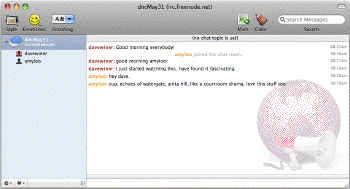
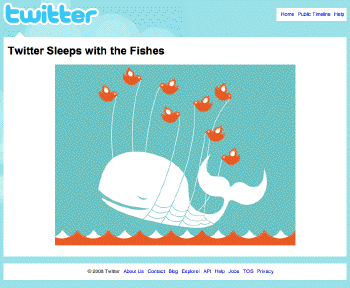


 The other point being overlooked, and this is a real problem, is that he says that the press was complicit. This is the more important
The other point being overlooked, and this is a real problem, is that he says that the press was complicit. This is the more important  I have another day of jury duty. I haven't been selected, but the
I have another day of jury duty. I haven't been selected, but the 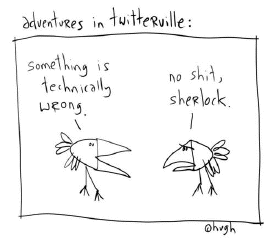
 There have been a lot of back-channel conversations about the future of Twitter, and one subject that keeps coming up (I keep bringing it up actually) is the need for a Twitter client that isn't aligned with any commercial interest. One that, by design, is meant to serve users and users only. I think it's time to start a public discussion about this, not sure if there's interest among developers -- this isn't something I'd write myself. The only way to find out is to ask.
There have been a lot of back-channel conversations about the future of Twitter, and one subject that keeps coming up (I keep bringing it up actually) is the need for a Twitter client that isn't aligned with any commercial interest. One that, by design, is meant to serve users and users only. I think it's time to start a public discussion about this, not sure if there's interest among developers -- this isn't something I'd write myself. The only way to find out is to ask.  I got called for jury duty in Oakland.
I got called for jury duty in Oakland. 
 I've heard a lot about data portability conferences and workshops, I've even been criticized for not going to one which happened on the west coast while I was in the east earlier this month. I don't plan to go to any of them, I don't see what's accomplished by having public meetings about this stuff. People who control users' data can accomplish a lot more by finding ways to give them the power to use it more effectively. Talking about principles of data portability only achieves talk. It gives people a sense of propriety over talking, not data, and people giving up propriety over talking are just yielding the floor, not yielding any power over users.
I've heard a lot about data portability conferences and workshops, I've even been criticized for not going to one which happened on the west coast while I was in the east earlier this month. I don't plan to go to any of them, I don't see what's accomplished by having public meetings about this stuff. People who control users' data can accomplish a lot more by finding ways to give them the power to use it more effectively. Talking about principles of data portability only achieves talk. It gives people a sense of propriety over talking, not data, and people giving up propriety over talking are just yielding the floor, not yielding any power over users.
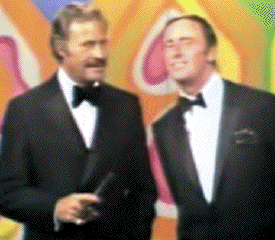
 I've been thinking about writing an app that would check Twitter every ten minutes to see if it's down or up, and track it over time. Today, being a particularly bad day for Twitter, I had a bit of time to actually write the app.
I've been thinking about writing an app that would check Twitter every ten minutes to see if it's down or up, and track it over time. Today, being a particularly bad day for Twitter, I had a bit of time to actually write the app.  Today Twitter began to communicate with their users, which they are to be commended and congratulated for. A journey of a thousand miles begins with a single step. There's a long road ahead, and everyone's going to learn a lot as we travel down it, and no doubt it's awkard at first. Now we can look back at the first step and think how much we accomplished, and look forward to the second.
Today Twitter began to communicate with their users, which they are to be commended and congratulated for. A journey of a thousand miles begins with a single step. There's a long road ahead, and everyone's going to learn a lot as we travel down it, and no doubt it's awkard at first. Now we can look back at the first step and think how much we accomplished, and look forward to the second.
 I mentioned
I mentioned 
 I've been writing about locking users in by holding their data for a long time from a number of different angles.
I've been writing about locking users in by holding their data for a long time from a number of different angles.  When I get back to California I always queue up
When I get back to California I always queue up  Finally broke down and listened to the
Finally broke down and listened to the 

 I like video comments, didn't think I would but I do. I think people are more responsible and throughtful when their words are backed by their voice and face.
I like video comments, didn't think I would but I do. I think people are more responsible and throughtful when their words are backed by their voice and face.

 To every yin there's a yang. Here's a
To every yin there's a yang. Here's a 
 The tech industry is organized around the concept of wars. In recent memory, the browser wars, the Java wars, before that there were wars over email APIs, desktops, GUIs, networking standards, you name it, if there's money to be made in controlling users, there's been a war to lock those users in. It's been that way since the dawn of time, and it will always be that way. It's in human nature.
The tech industry is organized around the concept of wars. In recent memory, the browser wars, the Java wars, before that there were wars over email APIs, desktops, GUIs, networking standards, you name it, if there's money to be made in controlling users, there's been a war to lock those users in. It's been that way since the dawn of time, and it will always be that way. It's in human nature. 

 1. There's no doubt now, Obama is going to be the Democratic nominee, and very likely the next President. I doubt if McCain has the sense of entitlement that HRC had but he's going to run on experience, and we don't want experience, we want intelligence, honesty and change.
1. There's no doubt now, Obama is going to be the Democratic nominee, and very likely the next President. I doubt if McCain has the sense of entitlement that HRC had but he's going to run on experience, and we don't want experience, we want intelligence, honesty and change. 


 Overnight Mike Arrington
Overnight Mike Arrington  Yesteray at breakfast at the
Yesteray at breakfast at the  At dinner last night,
At dinner last night, 

 Yesterday I
Yesterday I 

 Imagine that water pipes were a new thing, and therefore not reliable. They work for most people most of the time, but sometimes they go down, and then if you want to take a bath or wash the dishes or cook a meal, no luck.
Imagine that water pipes were a new thing, and therefore not reliable. They work for most people most of the time, but sometimes they go down, and then if you want to take a bath or wash the dishes or cook a meal, no luck. 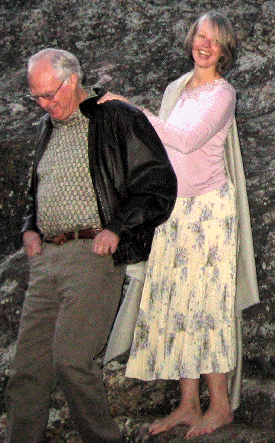


 The other day fellow Berkeleyite
The other day fellow Berkeleyite  I had a chance meeting with some people today who wanted to talk about bringing fiber to Berkeley. There's an idea that it could be done in a very Berkeley way, which is to say, the city owns it, and the service providers can tap in, but they don't get to dictate terms, as we know many of them like to do. I don't know how exactly I got enlisted, but I guess we've got enough Internet celebs in Berkeley to maybe get this done right, politically. Not sure what comes next, but it sure is interesting.
I had a chance meeting with some people today who wanted to talk about bringing fiber to Berkeley. There's an idea that it could be done in a very Berkeley way, which is to say, the city owns it, and the service providers can tap in, but they don't get to dictate terms, as we know many of them like to do. I don't know how exactly I got enlisted, but I guess we've got enough Internet celebs in Berkeley to maybe get this done right, politically. Not sure what comes next, but it sure is interesting. 





